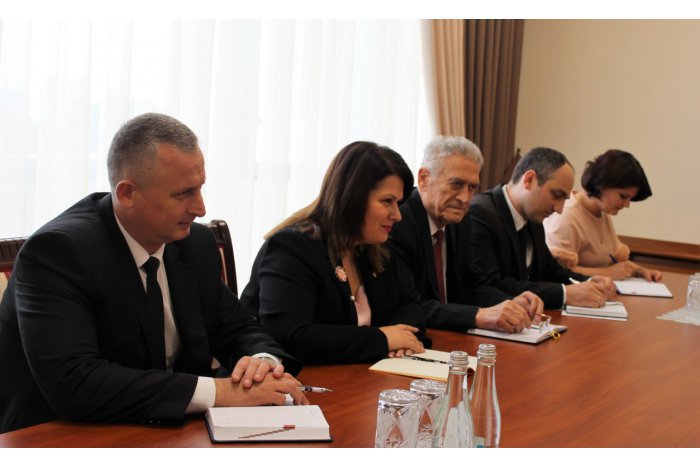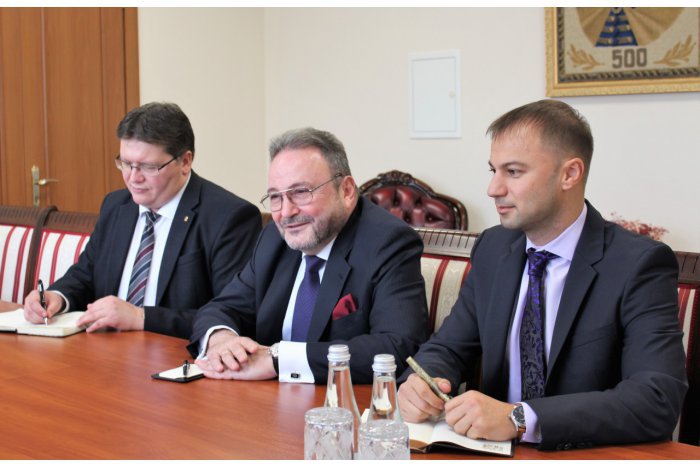Moldova insists on settlement of issue on free movement of pupils, teachers from Latin-script schools of Transnistrian region
18:23 | 03.10.2018 Category: Official
Chisinau, 3 October /MOLDPRES/ - Deputy Prime Minister Cristina Lesnic and Russia’s Special Representative for Transnistrian Settlement Sergey Gubarev today exchanged opinions, including with the carrying out of a follow-up on the results of a visit paid by the Russian official to Tiraspol, the Reintegration Policies Bureau has reported.
The discussions between the two officials were focused on problems of the Latin-script schools from the Transnistrian region. The sides reiterated the indispensability of excluding the practice constantly enforced by Tiraspol on the preliminary notification of the so-called structures from the left bank of Dniester, in order to facilitate the free movement of pupils, parents and teachers from these education institutions.
Cristina Lesnic stressed, in particular, the need to pay increased attention to the concerned issue. The deputy minister highlighted that Tiraspol maintaining the present approach infringes the fundamental right to free movement and, for these reasons, she would bring this subject for discussion on international dialogue platforms.
In the context, Deputy Prime Minister Cristina Lesnic insisted on the maintaining of the subject on Latin-script schools from the Transnistrian region on the working agenda of the 5+2 format till its final settlement.
Also, the deputy prime minister noted that, at present, the provisions of the protocol decision signed to this end on 25 November 2017 were not fully implemented. It is about the fact that the tariffs for all public utilities were not decreased to the level of those applicable to other education institutions from the Transnistrian region and the grounds nearby the schools were not transmitted to these institutions’ ownership.
The officials exchanged opinions also on other topics on the agenda of the negotiating process, such as the interaction in the telecommunications sector, implementing the mechanism of access of vehicles from Moldova’s eastern districts to international road traffic, as well as the need to create necessary premises for holding a new five-plus-two meeting.
Russia’s special representative for the Transnistrian settlement emphasized willingness to return to Moldova till late 2018, in order to hold more detailed discussions on the free movement issue.


